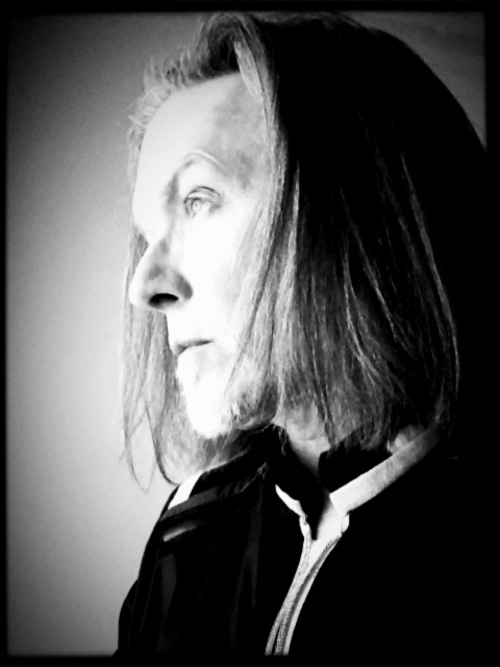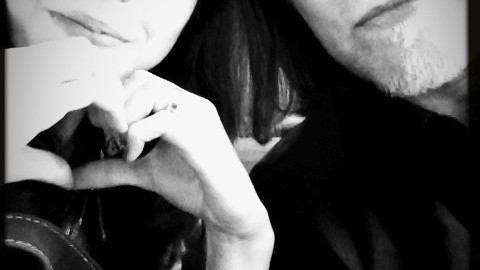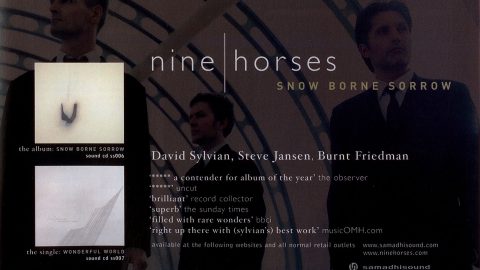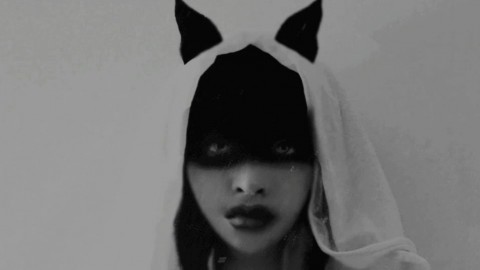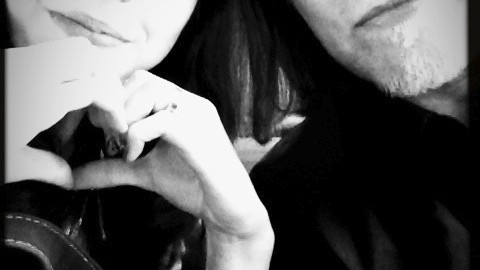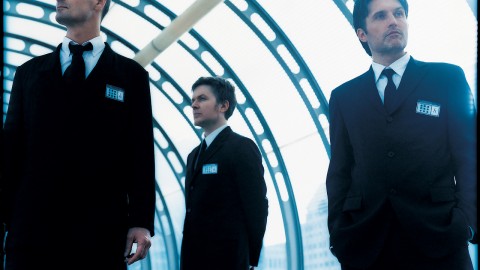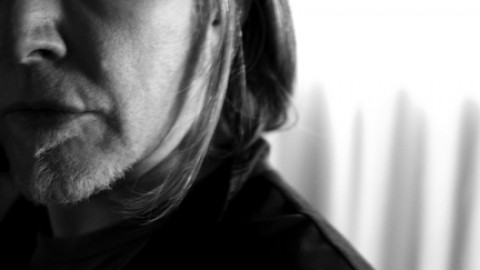Unknown source and author. Take from the 2011 publication on the official site.
On the subject of Punkt and Died in the Wool
Why did you agree to appear at the PUNKT-Festivalen?
Jan and Erik have been gracious enough to invite my participation in Punkt on an almost annual basis but this was the first year when the possibility of contributing to the festival in some fashion seemed a reality plus, I like what Jan and Erik have been doing with over the years and wanted to lend some support with my efforts.
What expectations do you have to your stay?
I don’t come with expectations, it’s not knowing exactly what to expect that’s exciting to me.
What do you know about the Norwegian music scene?
I appear to have a connection with an aspect of it in the form of some of my collaborative partners, a tenuous but respectful exchange with Rune Kristofferson, backed by a general knowledge of the key players past and present.
What is your experience of Jan Bang and Erik Honore as working partners?
Generous, gracious, sensitive, and fully engaged. They seem to have an understanding of my aesthetic, and I something of theirs.
In what direction do your interests as a musician lie at the moment?
I seem to be open to a variety of possibilities at this moment in time. In the short term I anticipate a return to slightly more formal structures than in the recent past but I intend to pursue multiple directions simultaneously.
How did you manage to get Derek Bailey on board the Blemish project?
It wasn’t that difficult. I spoke to him for about 15 mins on the phone after which he was onboard. I told him I wanted to be challenged as a vocalist and he said ‘that I can do for you’.
How did you come up with the idea of singing along to Baileys improvisational music? I know you did something similar with Keith Tippett in the 90s.
It was a matter of timing, maturity and the right material. When I first heard Derek back in the 80’s I thought ‘I’d love to work with this guy’ but it wasn’t until I was contemplating Blemish that this notion became for me a reality. During this gestation period for Blemish, Derek’s was the only music I could listen to and so there formed a bond in my mind between his work and the project I was about to embark on. After working on Blemish for a couple of weeks I was certain Derek had to be a part of it hence the call.
How did Derek Bailey rate the finished product. He wasnt in the habit of playing with vocalists.
I can’t say with any certainty. What someone may tell you in person may not be the most frank opinion although, Derek had no difficulty with being blunt. He told me some months later, at tea at his home in London, that he thought the pieces worked. He felt his role was accompanist to my lead (whether this was a good or a bad thing or just an observation I can’t say). It would’ve been interesting to work with Derek again in a different context but, alas, that wasn’t to be.
Why did you choose to remix such a perfect album as Blemish?
Because the pieces lent themselves to reinterpretation. I also used the remixes as a mean of testing the water for potential future collaborators.
In which musical tradition would you say you are working in 2011?
I follow the arc of my life without regard for tradition. That isn’t to say I have a disregard for it, on the contrary, I have great respect for the traditions of others, but I’ve never personally felt rooted in any particular tradition or genre. One might view things differently from a more objective perspective. I don’t adhere to any philosophy other than my own. I think of myself as following my instincts on the periphery, on the boundaries between, this and that tradition all the while carrying the weight of my own baggage. I’m a recording artist, a pop musician, with only a few fixed points of reference. My approach has nothing in common with a form of dilettantism. I’m rooted firmly within and what I try to manufacture through the work is a kind of poetry of the self, its inner workings, weaknesses, self-betrayals, epiphanies and disillusionment. I study the work and its context of those musicians I’m fortunate enough to collaborate with so as to get to the heart of the matter as rapidly as possible. They’re hand picked due to some specific attributes they possess which helps shorten the process of unearthing the desired material/direction, of finding common ground.
At the end of the day, when the work is complete, I couldn’t tell you if those with which I worked liked, respected, or otherwise, the material I produced but frankly, that’s not the point. I’m attempting to create a work that speaks for itself and that will eventually, hopefully, find its audience.
What artistic qualities permeate your career?
I’m an intuitive individual. I intuit something about the direction and the nature of the work I should be pursuing and adhere to that sense of ‘rightness’. It’s a little like taking a country walk and finding yourself slightly ill at ease at a fork in the road, which direction to take? The instinctual is something I have more faith in than anything of a cerebral nature. I get myself into a lot of hot water as a result. I’m stubborn, idealistic, uncompromising. There’s an underlying aesthetic at work that’s been my guiding principle for many a decade but it evolves, matures, it becomes more refined as time goes by.
An artist, of course, should change, should evolve. It’s unreasonable of us to ask otherwise.
What qualities must be present to make you satisfied with your music?
It must mirror back to me the impetus, the preverbal cluster of qualities that brought it into being in the first place. It must embody that. That being the case it can stand on it’s own feet, find its way in the world.
What do you in order to rejuvenate and keep you music alive? Miles Davis played with an ever-changing roster of musicians whom he found interesting. Jan Garbarek says that the essential things in his music were already in place from the beginning.
I allow myself to fall silent, forgetting what came before. I’m the eternal amateur, I have no idea how to make anything until I start over.
What has establishing Samadhisound meant to you?
It’s given me a personal sense of liberty and community although that community is spread around the globe.
Can we dream of you singing live on stage with musicians like Keith Rowe and Polwechsel?
It would be nice to think so. Everyone’s aware of how difficult it is to make touring work these days. I’ve been struggling with the practicalities of how to perform my recent work live given the ever narrowing parameters of what’s possible in that context. There’s also the matter of the nature of the material itself. What was born of improvisation has evolved into composition. One can only walk so far back in the opposite direction before reaching a point where deconstruction undoes the stitching that held the elements together.
Has singing with these musicians given you a new form of expressive freedom?
Certainly, as a writer, yes.
What importance does the visual aspect of your work have?
It comes as something of a relief to move from a project where the focus belongs entirely to the world of sound to that of sight. I don’t necessarily feel the different areas of my work feed off of one another but they allow me to shift focus and emphasis in manner I find beneficial. I remember reading something by Nietzsche when I was young that was a critique of specialists. That one man becomes nothing but a enormous ear, another, a nose etc. That one sense is doted on at the expense of others. These activities relieve me of that monogamous or monocultural relationship to sound. It broadens my sensory experience of the world.
As far as Ive understood, you lived alone in the woods of New England after 2005. You have expressed that you found it difficult to get used to play in the front of audiences again. What is the situation like today?
It’s very much the same as it was. I’ve grown accustomed to my isolation. It gets increasingly difficult to contemplate breaking with it.
Was your sojourn in the woods of New England in any way inspired by Herman Melville, Henry David Thoreau and Emily Dickinson?
In many ways I sought out a contemplative life, something in the way of a spiritual aspirant, though it’d be equally true to say that this was simply where I found myself after taking numerous forks in the road in the journey of my life. However, there’s always been something of the renunciate in me that yearned for retreat. I imagine it found me long before I knew I was ready, was foisted upon me and, as a result, I walked a long, inarticulate path wearing a partial blindfold that hindered progress but which I’ve since removed. Now that inarticulacy is giving way to something other, a fluency perhaps, and the difficulties of a solitary life, such as they are, are greatly diminished.
How does age relate to what you are doing at the moment? (I am older than you!)
Age has as much to do with the nature of the work as anything else. How could it not? Whether in acceptance or denial every aspect of our lives influences the decisions we make. See also the mention of the word ‘maturity’ in an earlier response. I don’t equate maturity with respectability, the genteel, the tasteful. I tend to equate it with knowing what the crux of the matter is and having the wherewithal to make a beeline for it. This might give the work a harder surface appearance, an abrasiveness perhaps, accompanied by an economy of means and, if we’re fortunate, a greater eloquence, but I’m convinced that ultimately the rewards are greater for this ‘caution to the wind’ approach. With age there should come a sort of recklessness, don’t you think? A certain immunity to the fear of failure because you know who you are and what you’re attempting to unearth in the writing. You become less and less an independent part of the process, you’re immersed in it. You’re down in the engine room trying to get the vessel to unmoor itself and move out into deeper waters. It’s about setting something down, getting it right. Doesn’t have to be overly serious, it depends
entirely where your focus lies. There’s a responsibility to try, to make an attempt, to aim high… if not, then fail, fail better, or fall into a welcoming silence.
Is there anything else you would like to say, that have not been touched upon by the above questions?
No… thanks for the interest.

